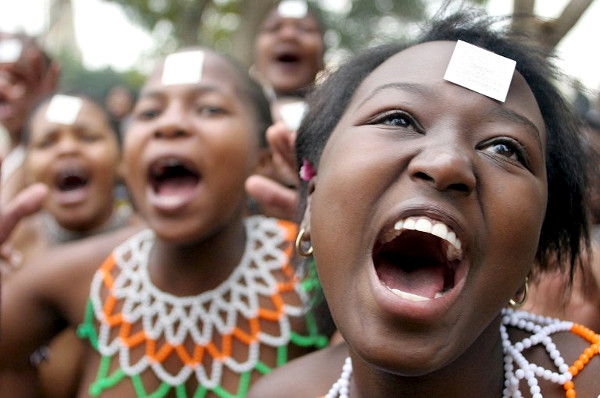The idea of incarcerating people into exiled spaces designed for ‘discipline’ in European society, is the antithesis to ubuntu … but it served the scramble for Africa and Asia well
Ubuntu
Becoming “Hope Providers” during Covid-19: We can either choose anger or courage
By Dr Gloria Marsay There has been much debate around the concept of hope. There are opinions for and against the thought of whether hope is a strategy or not. World leaders have expressed their opinions. Barack Obama spoke about embracing hope and change. Rudy Giuliani disagreed with him and retorted that “change […]
Ubuntu and eco-feminism as an antidote to neoliberalism
How many people have noticed that neoliberal capitalism undermines the values of ubuntu (“I am because others are”) as a traditional African practice? And how many know that ubuntu and ecofeminism share some fundamental principles and values? I know of at least one such person, and her work in this regard is extremely significant. In […]
What makes diversity dialogues relevant and meaningful?
By Curwyn Mapaling “We were like best friends and yet we just met that day. It’s so cool that you could come from such different places in the world and still form that kind of connection.” What happens when American post-grad counselling students from Indiana start talking to a bunch of post-grad psychology students from […]
Can a psychology of ubuntu heal our broken society?
The urgency of activism, although well-intentioned, can hide the ordinary, subtle, even banal nature of how societies become sick. The 16 days of activism, now quickly forgotten, reflected our uneasiness at how things are and had a desire to want to put things right. But change is a process, not an event. Our response to […]
Your homophobia is un-African
The average gay African is no stranger to torture, rape, prison or terror. Thirty-eight countries in Africa now oppress LGBT individuals in one way or another, and although a recent wave of anti-gay legislation is gaining massive media traction, the dignity of these people has never really been embraced in all corners of the continent. […]
Are non-Afrikans inherently bad?
On June 8 2013 fellow Thought Leader blogger Malaika wa Azania shared a short opinion piece on her FB wall. In it she raised debate around the apparent Ubuntu in African people, and how the white man has “made of us animals with their capitalism and individualistic ideologies”. She argued that Africans have been taken […]
The Ubuntu Declaration and Mthembu* Act of 30/4/2013
It has been formally announced that the direct descendants of its invention have formally redefined Ubuntu, the concept formally defined, as: “We only exist because of each other” and similar. The new definition has been proclaimed as follows: expedience ownership heartlessness industrious stupidity abuse of the elderly, infirm or powerless homelessness (also homes that are […]
Ubuntu in western society
By Melo Magolego Black South Africans have a penchant for waxing lyrical about botho/ubuntu. It is an ideology which, much like Pratley Putty, we seek to export worldwide. An ideology to which we claim intellectual property and boldly assert is inextricably linked to our being Africans. But is this thing really that unique? Or do […]
Discovering ubuntu in the Somali regions of Africa
By Namhla Thando Matshanda On a recent trip to the Horn of Africa I spent a substantial amount of time in Somali-inhabited areas. Most of this time was spent in Ethiopia’s Somali regional state, with a brief visit to the autonomous northern region of Somalia, Somaliland. I feel compelled to write this piece in the […]
Ubuntu, a cliché not a philosophy
Ubuntu, like many other words and concepts one comes across at a young age, has been a part of my reservoir of knowledge for so large a part of my life that it is impossible, save with the intervention of hypnotherapy, to pinpoint the first time I heard or understood it. One rarely came across […]
Ubuntu — beyond the (ism)
By Nondumiso Hlophe When was the last time you really thought about how you choose your words? The words that you choose to use — or not to use — are often indicative of what you know and what you value. When I was younger, my mom told me never to use a word, unless […]




